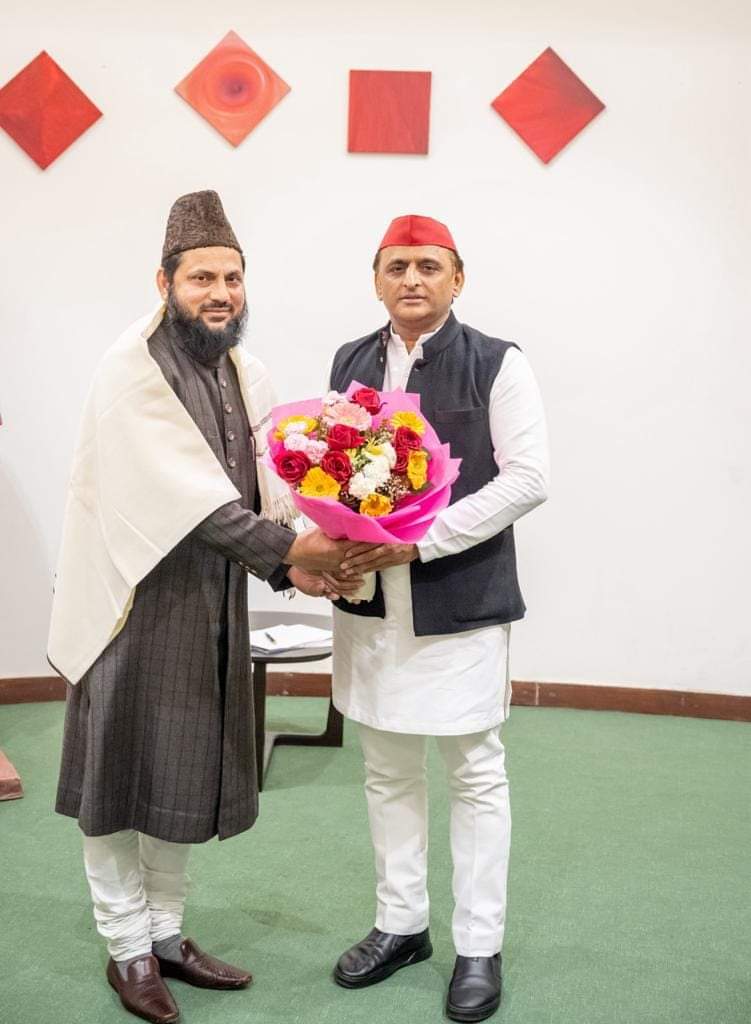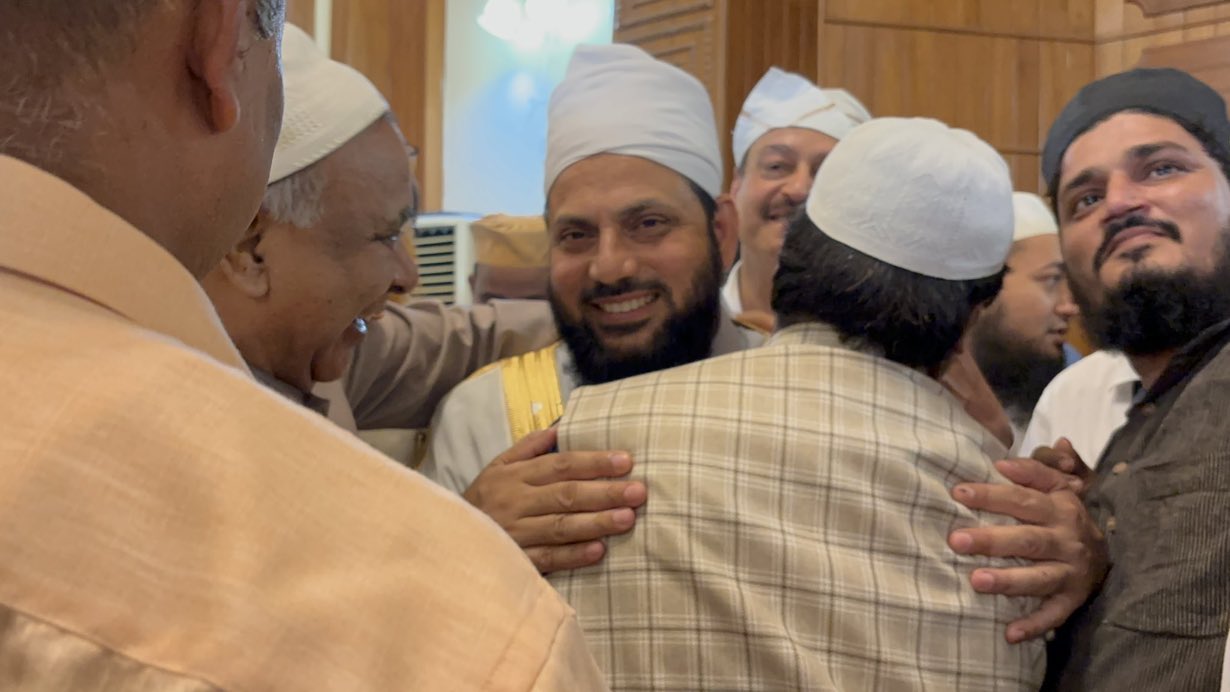From Imam to MP: Mohibbullah Nadvi’s Surprising Victory in Uttar Pradesh’s Rampur

TCN News
New Delhi: Mohibbullah Nadvi’s journey to victory in the general elections from Rampur, Uttar Pradesh, was a tale of unexpected twists and challenges. Initially not the preferred candidate of the Samajwadi Party (SP), he filed his nomination papers on the final day (March 27).
Nadvi, who has spent nearly two decades serving as an imam (prayer leader) at Delhi’s Parliament Street’s Jama Masjid, was catapulted into the political spotlight when the SP surprisingly declared the 48-year-old as its Lok Sabha candidate. Despite facing significant hurdles, he secured a decisive victory, defeating the Bharatiya Janata Party (BJP) by a margin of over 87,000 votes.
Among the six Muslim candidates who contested from Uttar Pradesh, Nadvi was one of the five elected MPs.
He expressed hope that the improved performance of the Opposition against the BJP on livelihood issues would address concerns over low Muslim representation in Parliament.
Nadvi emphasized the importance of quality representation over mere numbers, advocating for candidates who understand Islamic principles and can effectively voice Muslim concerns.

His journey from being nominated by the SP to emerging victorious in the elections was filled with drama and uncertainty. Initially not considered the frontrunner within the party due to his lack of political background, his candidacy gained momentum following a crucial meeting with SP President Akhilesh Yadav in Lucknow earlier that year.
Supported by influential figures within the party, Nadvi’s nomination came amidst last-minute challenges and internal party divisions — particularly influenced by senior leader Azam Khan’s preferences in candidate selection.
Reflecting on the tense moments leading to his nomination, he acknowledged the complexities and challenges he faced — including opposition from rival factions and administrative obstacles. Despite being labeled an “outsider”, he emphasized his deep roots in Rampur, where he was born and raised in Raza Nagar village, inheriting ancestral land and completing his education in Islamic studies.
His decision to enter politics stemmed from his interactions with prominent political figures who frequented the mosque where he served as imam since 2005.
His candidacy stirred controversy, particularly concerning his comments on issues such as the incarceration of Azam Khan, drawing mixed reactions from political circles and the public.
Nevertheless, Nadvi’s victory in Rampur underscored his growing influence and marked a significant development in Uttar Pradesh’s political landscape, highlighting evolving dynamics in Muslim representation within the Indian democracy.
